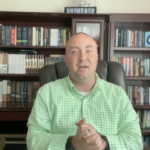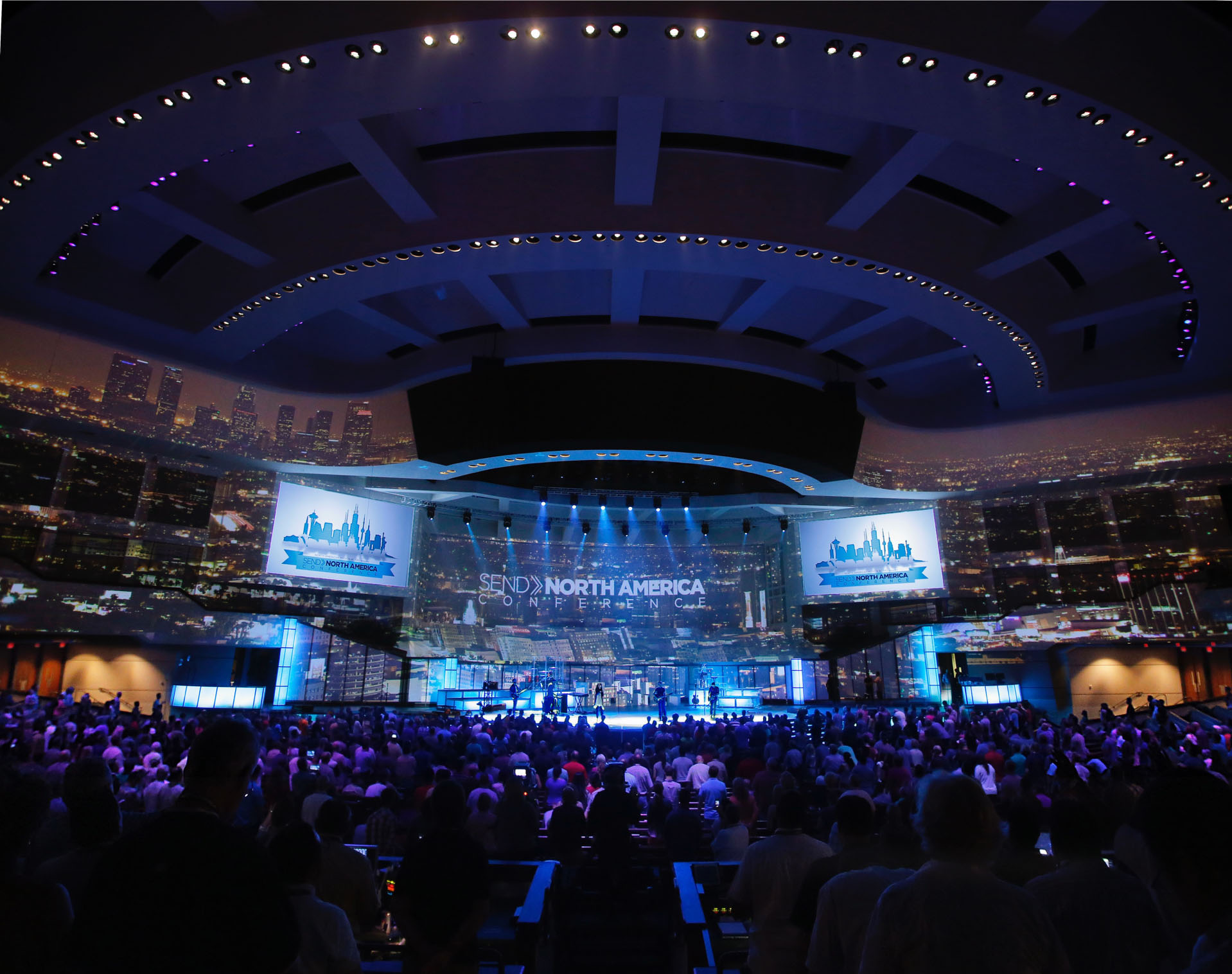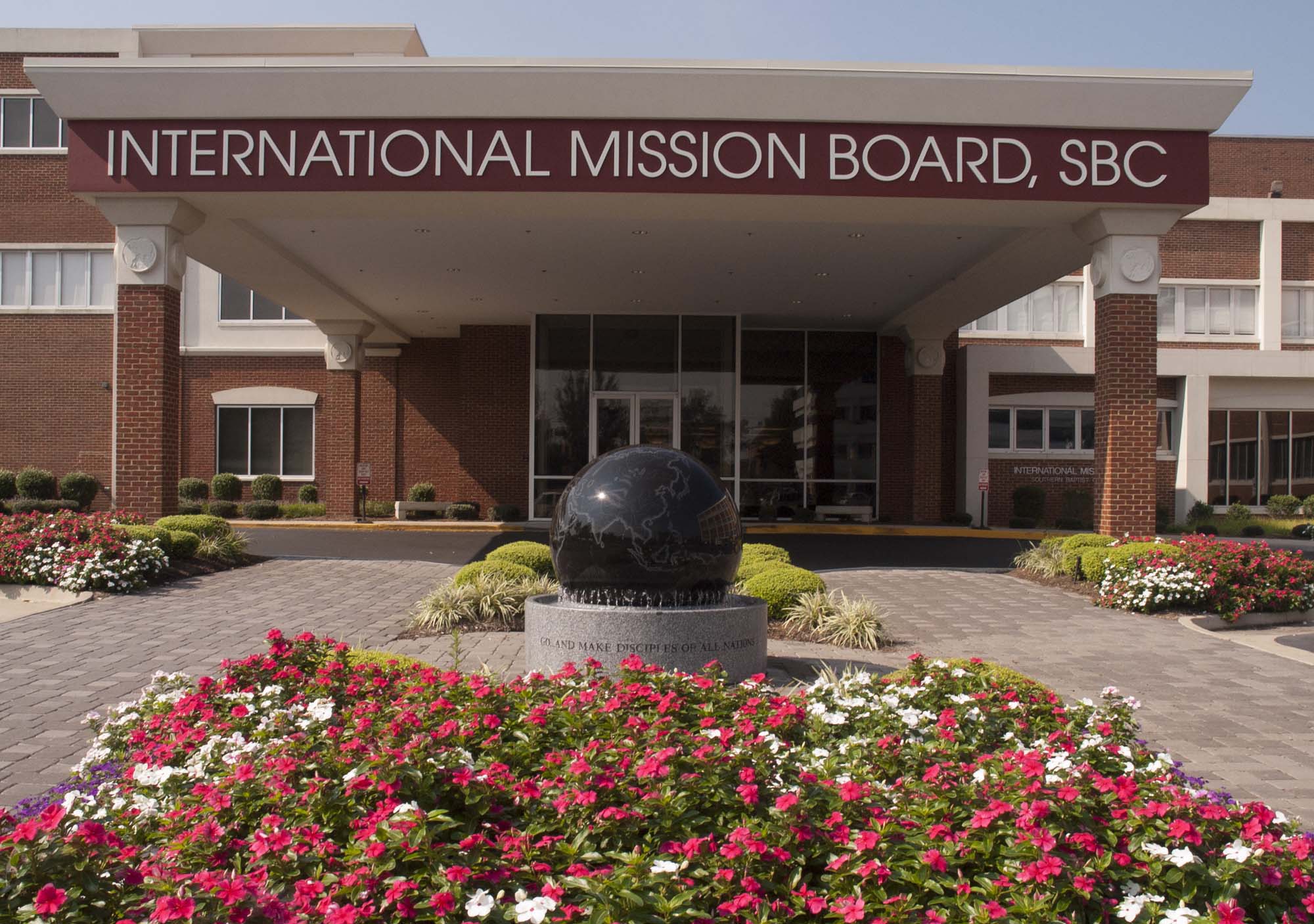

It is not uncommon for pastors in Rwanda, following local custom, to beat their wives. When Hope Chapel Pastor Neal Davidson saw this, he started holding retreats for pastors and their wives as part of training to honor wives. Here, Mike McDaniel hands out cloth to pastors’ wives during a retreat. Photos courtesy of Hope Chapel.
The 7,800 people who live in Sterling, Massachusetts, only get eight weeks of summer, but they have three ice cream stores. It’s that kind of anticipation that native New Englander Neal Davidson tapped into when he started Hope Chapel in 2002.
The four hundred participants in Sunday morning worship—about six hundred this Easter Sunday—spread that hope through a variety of local, state, national, and international missions that starts with the use of the church’s building by several community groups, and through their giving 13 percent of their undesignated offerings to missions, with one half of that through the Cooperative Program.
“One of the marvelous things about the Cooperative Program is that it really levels the playing field for people called to missions to actually go out on missions,” Davidson said. “There are just a lot of people in smaller churches who would never get to the mission field without CP.”
In addition, the pastor continued, “With the Cooperative Program we get the satisfaction of giving to worldwide missions work. We get the joy of knowing we’re truly participating in the Great Commission. We get a chance to be faithful.”
In 1987, Davidson became the first person to accept a call to pastor a New England Southern Baptist church who had grown up in one. He understands the culture of his community.
Though the church met in a school in its early years, it built a structure—complete with mortgage—in 2006 because the townspeople are “traditional,” the pastor said, adding that the mortgage is due to be paid off early.
“We thought it part of our missional strategy to have a traditional building,” Davidson said. “That clearly was the ticket. We grew quickly from one hundred and fifty to three hundred in attendance.
“We really do try to work hard to celebrate people and be engaged in those things that make a positive difference in our community,” the pastor added.

Hope Chapel’s “traditional” building.
The church tapped into the “American Dream” mindset when the name Hope Chapel was chosen, and leaders today respond to the hope members have that they can make a difference by involvement in several ministries and Hope Chapel’s first daughter church.
A Celebrate Recovery group is Hope Chapel’s latest ministry.
“It’s off to a quiet but a solid start,” Davidson said about the group formed in February, in the midst of a snow-steeped winter. “It’s something we were open to for awhile, but we waited for a leader. We want our ministries to follow the leader.”
Hope Chapel members partner with Pleasant Street Baptist Church of Worcester to volunteer in a meal ministry to the homeless each month; with Clearway Clinic (free medical and pregnancy care) and First Concern pregnancy resource center; with the Racing with Jesus racetrack ministry; and with Builders for Christ, an organization that sent five hundred volunteers from forty-seven churches in fourteen states to help Hope Chapel construct its building.
It also is an active partner in the Massachusetts Baptist Association and the Baptist Convention of New England, where Davidson is in his second one-year term as president.
International investment in missions—in addition to giving through the Cooperative Program and an additional 1 percent directly to the International Mission Board—involves “Good Rain” in Rwanda, a ministry the pastor started in 2011 to teach the pastors basic theology and to change the culture to one that honors women; repeat visits to the Middle East and North Africa to work with like-minded Christians; elsewhere in Africa to teach leaders how to think missiologically; and encouraging an IMB worker in Poland.
“We get to celebrate on a regular basis what God allows us to be a part of, expanding the Kingdom’s footprint around the world,” Davidson said, referring to reports coming in regularly from Hope Chapel’s missions partners in the United States and internationally. “That helps encourage a spirit of generosity.
“Sometimes just doing the right thing is a blessing,” the pastor continued. “That’s the way we look at it.”
In 2013, about thirty people from Hope Chapel drove fifteen miles south and planted the Church on Seven Hills in Worcester, Massachusetts, one of the most populous cities in New England.
“I love people and I believe in the value of congregational life, so it was a natural flow to plant a church where there needed to be one,” said Davidson, who was reared at First Baptist Church of Sudbury, about twenty miles east of Sterling and inside the I-495 beltway that marks Greater Boston.
Now past the heady days of planting Hope Chapel and its first daughter, the Church on Seven Hills, Davidson sees the need to remain focused on the objective: connecting as many as possible of the six million people in Massachusetts with the God who created them.
“We need to remain risk-takers,” Davidson said. “You don’t want to lose what you’ve accomplished, but if you play everything conservatively, you’re going to plateau.
“We need to stay in the place where we take big steps of faith, but we need light, so we wait on God,” the pastor continued. “The church plant was our last big step of faith; now we’re praying for the next.”




















